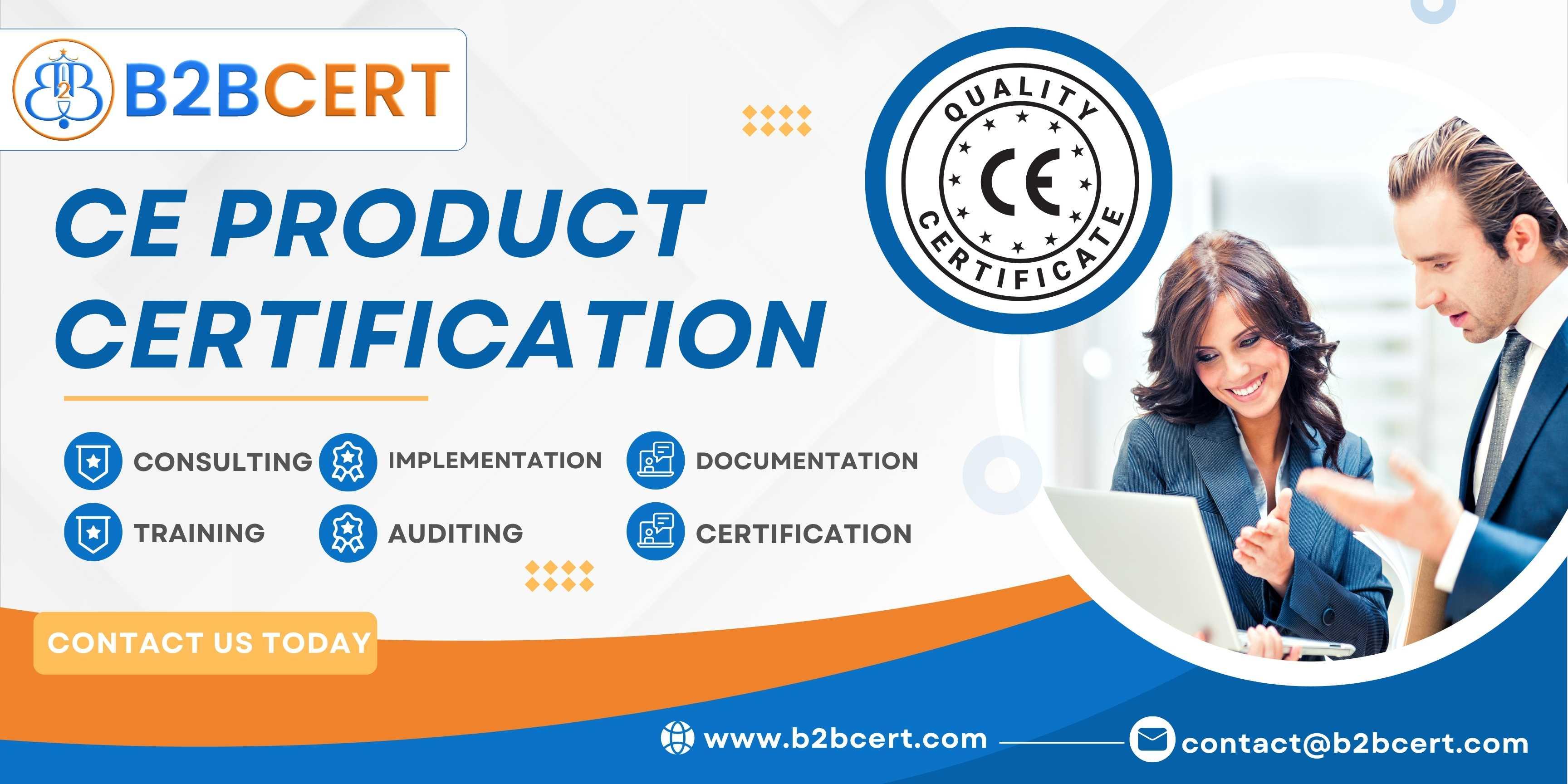Future Trends in CE Certification: What to Expect in the EEA

As markets across the European Economic Area (EEA) continue to evolve, CE Certification remains a central requirement for demonstrating product safety, environmental responsibility, and regulatory compliance. The CE mark is more than a legal requirement—it is a symbol of trust and market readiness. As global supply chains become more complex and technologies evolve, CE Certification is also undergoing significant transformation.
For manufacturers, exporters, and distributors—especially those pursuing CE Certification in Iraq—understanding upcoming changes is crucial for maintaining access to the EEA market. This article analyzes emerging trends, evolving regulatory expectations, and how businesses can proactively prepare for the next generation of CE compliance.
1. Increased Focus on Digital Product Compliance
Digital transformation is reshaping regulatory practices across the EEA. With more products incorporating smart technology, artificial intelligence, and wireless communication, CE requirements are expanding to address new risks.
Key Digital Trends Influencing CE Certification
-
Cybersecurity requirements for IoT devices
-
Software integrity and update management
-
Data protection considerations
-
Enhanced EMC (Electromagnetic Compatibility) testing
For organizations working toward CE in Iraq, this means that digital components, embedded software, and connectivity functions must undergo deeper evaluation. CE directives are expected to incorporate stricter security and data-handling requirements to ensure consumer safety and prevent digital vulnerabilities.
2. Stricter Environmental and Sustainability Standards
Europe is moving rapidly toward eco-friendly manufacturing and sustainable product lifecycles. This shift is driven by initiatives like the European Green Deal, Circular Economy Action Plan, and new eco-design regulations.
Future Environmental Priorities
-
Reduction of carbon footprint across the supply chain
-
Mandatory environmental performance reporting
-
Use of recyclable and non-hazardous materials
-
Sustainable packaging requirements
As a result, businesses aiming for CE Certification in Iraq must prepare for new environmental assessments and documentation obligations. While this may increase the CE Cost in Iraq, the long-term benefits include improved resource efficiency, better brand perception, and compliance with global sustainability trends.
3. Greater Emphasis on Product Lifecycle Compliance
Traditionally, CE Certification focused on safety at the point of production. Future regulations will increasingly emphasize lifecycle compliance, meaning manufacturers must ensure safety, sustainability, and performance throughout the product’s usable life.
Lifecycle-Driven Compliance Requirements
-
Clear instructions for repair, maintenance, and disposal
-
Post-market surveillance responsibilities
-
Product durability and longevity standards
-
Continuous risk assessment and safety updates
This will impact not only manufacturers but also importers and distributors involved with CE in Iraq, who must strengthen their product monitoring and reporting systems.
4. Integration of Artificial Intelligence Guidelines
AI-driven products—from smart home systems to industrial machinery—are expected to face more rigorous CE compliance frameworks. The upcoming EU AI Act will introduce specific obligations for high-risk AI systems.
Impact of AI on CE Certification
-
Classification of AI-based products according to risk levels
-
Mandatory documentation of algorithms and data sets
-
Requirements for transparency, control, and human oversight
-
Expanded technical file documentation
Businesses working with CE Consultants in Iraq will need expert guidance to ensure that AI-integrated products align with EEA expectations, especially as regulations continue to evolve rapidly.
5. Stronger Market Surveillance and Enforcement
The EEA is strengthening its enforcement mechanisms to ensure only fully compliant products enter the market. Authorities will conduct heightened inspections, online marketplace monitoring, and cross-border cooperation.
What This Means for Manufacturers
-
Higher penalties for non-compliance
-
Stricter documentation checks during a CE Audit in Iraq or upon EEA entry
-
Increased scrutiny of imported electronic goods, toys, machinery, and medical devices
This underscores the need for businesses to have fully complete and updated technical documentation, risk assessments, and conformity declarations.
6. Harmonization and Updates to CE Directives
Many CE directives are currently undergoing revision to incorporate modern safety expectations. These include the Machinery Regulation, Radio Equipment Regulation, Low Voltage Directive, and EMC Directive.
Expected Updates Include:
-
More precise definitions of product categories
-
Updated safety requirements for new technologies
-
Clearer responsibilities for manufacturers and distributors
-
Enhanced alignment with global standards
For businesses preparing for CE Certification in Iraq, staying informed about directive updates is essential to avoid non-compliance, delays, or the need for re-testing.
7. Rise of Digital Technical Documentation
The shift toward digitization will extend to CE documentation as well. Digital technical files will soon become the standard, improving accessibility and traceability.
Benefits of Digital Documentation
-
Easier collaboration with notified bodies
-
Faster preparation for audits and market inspections
-
Reduced administrative workload
-
Real-time updates and tracking
This trend supports organizations undergoing a CE Audit in Iraq, making it easier to submit documents, evidence, and compliance data efficiently.
8. Increased Demand for Expert Guidance
As CE regulations become more complex, businesses will rely more heavily on expert consultants to navigate new expectations. The role of CE Consultants in Iraq is becoming even more critical, especially in industries affected by rapid technological innovation.
How Consultants Support Future Compliance
-
Identifying applicable directives and technical standards
-
Conducting pre-assessment audits
-
Preparing documentation for CE marking
-
Ensuring readiness for EEA market access
Their expertise helps companies minimize errors, reduce delays, and maintain compliance within the evolving regulatory landscape.
Conclusion: Preparing for the Future of CE Compliance
The future of CE Certification is increasingly shaped by digitalization, sustainability priorities, lifecycle management, and advanced regulatory frameworks. For organizations pursuing CE Certification in Iraq, understanding these trends is key to staying competitive and ensuring successful market entry into the EEA.
While evolving requirements may influence the CE Cost in Iraq, early preparation, continuous learning, and collaboration with experienced CE Consultants in Iraq can significantly streamline compliance. Companies that adapt now—by investing in updated technologies, enhanced documentation systems, and proactive product monitoring—will be well positioned to thrive in the next era of CE compliance.
- Art
- Education et Formation
- Crafts
- Sciences et Technologies
- Economie
- Politique
- Actualité
- Littérature
- Divertissement
- Histoire
- Health
- Actualité
- Shopping & Commerce
- Music
- Agriculture & élevage
- Voyage et Evènementiel
- Beauté & esthétique
- Religion
- Festival
- Sports
- Fête
- Autres



